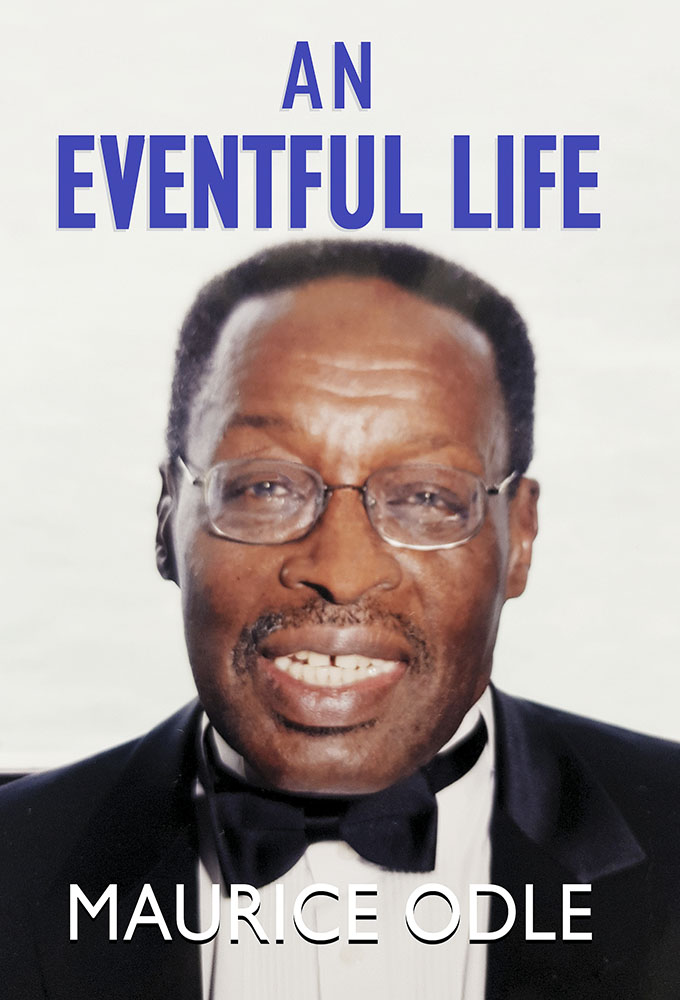An Eventful Life by Dr. Maurice Odle
This is the fourth and final part of Maurice Odle’s autobiography narrated in a reflective writing style, in which personal experiences, political analysis, and broader reflections on global issues are interwoven to give a comprehensive view of his life’s work and the contexts in which it unfolded. At the national level, Odle discusses the persistent racial and ethnic divisions in Guyana’s politics and society; the factors that led to the coalition government’s loss in the 2020 election; and the challenges of governance in a deeply divided society. His proposed remedy is for more inclusive governance, which also addresses the economic disparities between different ethnic groups.
Regarding regional issues, Odle reflects on the Caribbean integration process, discussing both its achievements and shortcomings. With his several years within the CARICOM Secretariat, Odle is critical of the Caricom integration experience, citing as examples, the issues of production integration and the establishment of an oil refinery by Guyana rather than utilising the virtually idle refinery plant in Trinidad and Tobago. He is also extremely critical of CARICOM’s tepid approach to helping Haiti, a failing member state, comparing this neglect to the Region’s approach to Guyana during its economic decline during the 70s and 80s.
Noting the rise in violent crimes in the Region, Odle, ever the economist, draws attention to its detrimental effect on the viability of a vibrant social tourism industry and partly related to the drug trade and the easy access to guns from the USA. In that regard Odle suggested that the Caribbean needs to demand a USA contribution to a security fund.
On the international front, Odle provides a critical analysis of global economic governance and security developments. He traces the evolution of international relations from the Cold War era to the present, discussing the rise of China, the resurgence of Russia, and the continued militaristic role of the United States. He critiques what he calls the “New Imperialism,” arguing that it operates through both hard and soft power, including military, economic, and informational means.
Odle’s reflections on global economic governance are particularly insightful. He critiques the imbalances in global rules, the skewed implementation of international agreements, and the limitations of promoting development through global conference declarations. His call for a more democratic and accountable system of global economic management resonates strongly in today’s interconnected world.
Odle also has his fulsome say on the very one-sided nature of the 2016 petroleum contract with Exxon, and the PPP/C’s reversal of “review and renegotiate” while in opposition, to sanctity of contract on gaining power. Odle attributes this to the PPP/C’s visceral fear of alienating America’s interest which he attributes to the US’s role in the PPP’s removal from government in 1953 and 1964. He suggests that the Americans were happy to see it lose office in 2015, partly owing to corruption and criminalisation of the state. Odle sums up the PPP by saying that remaining in office is more important to the Party than the effective maximisation of benefits according to the people of Guyana.
At a personal level, Odle’s reflects on his personal life, expressing his regrets about not spending enough time with family, and his hopes for the future of Guyana and the Caribbean region. Odle has not been shy to discuss his private life and to the contrast between his three wives (not all at the same time), the even-tempered Margaret Hutson, Brenda Do Harris, the political activist and his current wife Valerie who he describes as the consummate social animal.
An Eventful Life is not just a personal history; it constitutes a crucial historical document that provides invaluable insights into the economic and political dynamics of the Caribbean region and its place in the global economy. For policymakers, academics, and anyone interested in international development or Caribbean affairs, this book offers both historical context and forward-looking analysis from one of the region’s most experienced economic minds.
I will give the final say to two individuals who have known Odle for decades. The first, a literary giant, expressed the hope that what he describes as a compelling narrative should have wide appeal which deserves a very wide readership. The other, a fellow academic described the book as an “insightful and entertaining memoir.” The latter applauds Odle’s courage and honesty in talking about his family life and other close relationships, and describes Odle’s “reflections, especially at the international level” as compulsory reading for politicians, scholars and commentators.
In closing, let me say a word for the London publishers Hansib of Guyanese heritage. The quality of the production is excellent and even the list price compares favourably with low-cost publishing countries like China and India.
An Eventful Life will be launched at Moray House next Wednesday (Sept. 11) at 5 pm where you will be able to obtain an autographed copy.









